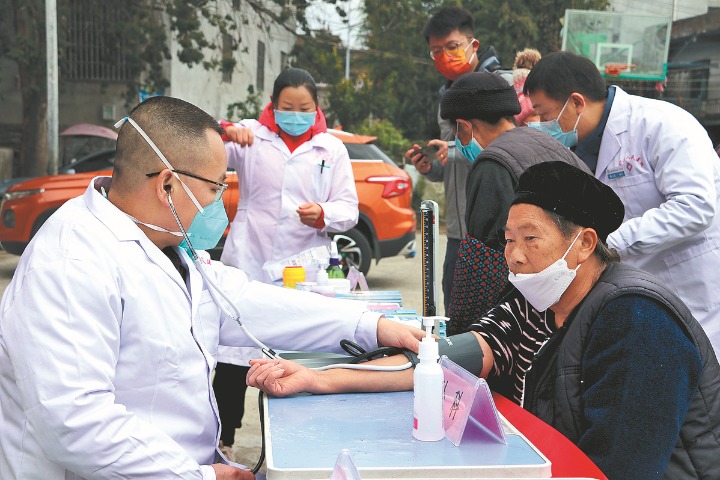Hong Kong-led study discovers simeprevir as potent treatment for COVID-19
HONG KONG -- A Hong Kong-led global study showed that a hepatitis C virus drug simeprevir can strongly suppress the replication of SARS-CoV-2, the virus that causes COVID-19, according to a press release issued by the Chinese University of Hong Kong (CUHK) on Monday.
Since the beginning of 2020, researchers from the CUHK and the University of Hong Kong have collaborated with over 30 scientists from local and overseas laboratories to search for an effective drug molecule for the treatment of COVID-19.
Using a combination of biochemistry, cell biology and computational chemistry techniques, the team discovered simeprevir can simultaneously target two major viral proteins that are critical to viral replication. Simeprevir is by now the only antiviral drug that can target more than one SARS-CoV-2 protein.
Billy Wai Lung Ng, a professor from the CUHK's faculty of medicine, said that simeprevir is an antiviral agent used for the treatment of hepatitis C by inhibiting the activity of viral protease so as to suppress viral replication.
Michael Chi Wai Chan, an associate professor of the School of Public Health from the HKU's faculty of medicine, said the team also evaluated the antiviral effect of simeprevir together with remdesivir. The results showed that with 3.3 uM of remdesivir and simeprevir, the antiviral effect was increased over 100-fold when compared with remdesivir alone.
David Shu Cheong Hui, an respiratory medicine expert from the CUHK, said that recent research studies suggested that the existing vaccines and drugs may not be able to combat the emerging mutants of the virus effectively.
"Moreover, the recurring coronavirus epidemics in the last two decades suggest that the virus may become a persistent healthcare issue threatening global health. It is therefore essential to enlarge our therapeutic box in preparation for future coronavirus pandemics," Hui said.
The results of the study have been published in a leading international chemistry journal ACS Central Science.
Please feel free to contact us by sending your questions to question@chinadaily.com.cn or commenting on China Daily app. We will ask experts to answer them.














